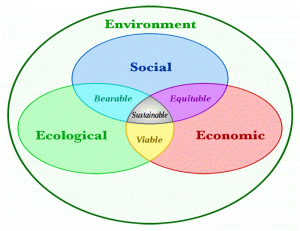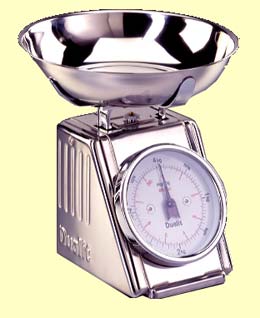
Sustainability is of great interest but it means many different things to different people. One of the aspects of sustainability is Corporate Social Responsibility. In this area alone there are by count, 37 different interpretations. There is also considerable confusion between sustainability and viability, and both are impacted by technology.
Viability is the capacity to work or function as an independent unit. Sustainability is long term viability plus resource management which does not deplete or degrade the resources. The two come together where there is a perceived or actual limit on resources--- example: Peak Oil.
However, we choose to neglect our consumption of non-renewable resources in our calculation of sustainable behavior. Those uncounted activities include fossil extraction, mining, and consumption of some water resources.
The Impact of Technology
The real difference between viability and sustainability is in the how those societies use their irreplaceable resources, and the impact of technology.
Technology is the key to a viable and sustainable society because it is the agent of forced change. A viable society embraces technology and it's changes. A non-viable society, non sustainability society, rejects technology without adequate replacements, and quickly falls into decline, and may disappear.
Technology has advantages and drawbacks, and its management is not without challenge. Medical technology has eradicated smallpox, almost eliminated polio, and eradicated major diseases and increased longevity. It also brought us thalidomide babies, and other medical mistakes. Nuclear technology gave us the promise of cheap power but also gave us Three Mile Island and Chernobyl. Chemical technology gave us rubber, plastics, pesticides, computers etc., but it also brought us Sovesto, Italy, Bophal, India, and the Love Canal.

Society, once having adopted a technology, is extremely reluctant to abandon it. How many of us would return our laptops? (One hand in the audience went up, but then said, "Only for a newer one.") Technology is a forcing issue and it changes the basic definitions of viability and sustainability by making advances that are almost impossible to relinquish.
Consider the Plains Indians, the Mayan's and the Incas. They each had sustainable societies by our current definitions. They were each defeated by technology. The Plains Indians' society was largely eliminated by the mouldeboard plow, the rifle and the Colt .45. The Incas were defeated by the Spanish conquistadors, and the disease they brought. Their technology was not in the medical area and the disease decimated the society. The Mayan society largely disappeared when drought struck and their technology could not support the population of their cities.
How We Measure Sustainability
Simply put, a sustainable society must make a measurable profit. That profit may or not be measured in economic terms but must be measurable. The profit must be able to be measured and accumulated if the organism is to weather lean times and survive. The profit tells the society what it can or cannot do in terms that can be defined. Example: We do not choose to recycle ALL the spent electronics we use--despite the use of underpaid child labor in third world countries.
Triple Bottom Line is people, planet, profit as one proposed measure. The problem with this technique is in the metrics for planet and people. Those measures tend to be "squishy", and can be measured only indirectly in relationship to profit. Again, I cite the 37 different definitions for the Corporate Social Responsbility.
There is a newly promoted Quadruple Bottom Line, and it is people, planet, profit, and a spiritual and/or a cultural dimension where worker satisfaction is somehow included in the metric. According to a recent definition, businesses using QBL reporting must:
"engage in sustainable environmental practices, focus on recycling, waste reduction, reduced energy consumption, and avoid production of harmful chemicals."
The spiritual aspect of QBL seeks spiritual or cultural fulfillment of employees who dedicate their lives and activities to along with corporate goals.
That's just plain wrong! We have enough trouble defining harmul chemicals, let alone the cultural goals. If you can't measure it, you can't control it. If we can't measure or control it, then what are we promoting? Each company or society is free to make up its own definition of QBL and engage in "greenwashing" its image.
A Different Approach

I would propose a different approach. Measure energy use in Giga Joules (Gj) or Kwh for all your activities. Carbon footprinting, waste recycling, etc. are interesting activities but because of differences in products and processes even between similar companies, you can't compare similar companies. As a brief aside, I would like to point out that companies who use landfill methane as an energy source are not really greener than others, just using a different source.
- Compare your energy use irrespective of sources; there is a reliable database that will enable measurement.
- Report your social accomplishments, and societal activities separately and blow your own horn about these activities as much as you want to.
Good for you for having a social conscience. But to report your social and other activities in the same format with permit compliance activities or environmental performance dishonors the efforts of all the people attending this conference.
We need to call a spade a spade, especially where our social objectives are involved. Social objectives need to be kept independent from profit measures and value judgments about the goodness or evil of a particular project or product. In short, we need to take a hard look at the basic building blocks of our activities--energy use and consumption per unit of production. That's our true metric which will allow us to compare our activities and set meaningful goals.
The alternative is the type of Environmental Performance Index which was prepared by Yale Law School. Take a minute and see what's there and see how many of the measures are relevant to what we are really doing and how many of those are judgment calls by "experts".
The next time someone tells you how green their activities are or how green their company is, stop and ask them how and what they measure. Then separate the social and societal goals. The results might be surprising but they will be honest.
![]()



Comments
This is a thought provoking post - somewhat bluntly honest, but in a way that makes you think and evaluate with a new perspective. Measuring energy use important - and one of the few few things in the 'sustainability' realm that is definitively measurable. You can compare kW to kW, while, as you mention, many of the other goals or metrics are not as comparable. Improvements can be measured and recorded. But this is efficiency and, while important, is not sustainability To be 'sustainable' there are many more factors, I think it is a more complicated matter. It is difficult because most discussions about sustainability that last long enough devolve into a mess of buzz words, jargon, reference points, boundary limits, and generally get bogged down. Like your example of using landfill methane. You may get points for harnessing a waste byproduct - but it you are wasting that energy it doesn't count as much. We don't choose to recycle all electronics because for some more energy input is required than energy recovered. I think you are right - the real solution to the sustainability argument is going to be to define a set of metrics. But I think that, as most things in the real world, this is a complicated web of effects and is difficult to nail down. Start with hard numbers, use them when applicable. Try to do your best with them, do your homework to avoid 'green-washing', and keep learning so that you can keep improving. Maybe I am missing a piece here (I couldn't get to the full article), but I am not sure what you are trying to reach as a conclusion. Does employee satisfaction not count as a goal simply because it is attached to a meter? We shouldn't try making our community a better, happier place unless there is a print out in metric units? What if employee satisfaction increases productivity and thereby less time is required per unit - increasing energy efficiency? What if by doing good in the community a company is able to reduce their PR budget and use that money for energy infrastructure improvements - increasing energy efficiency? I don't think that these areas need to dominate any 'sustainability' plan - but they shouldn't be excluded.
Thanks for your comments. The key to any sustainable society is profitability. The society needs a way to measure profitability. This is also true of companies. Energy measurement is one aspect of that comparison, but not the only aspect. The metrics for a society are different than those of a corporation. My attempt was to define one aspect of the metric by putting everything on a common energy footing. That avoids the many arguments about kg of CO2, or other things reduced, saved, or eliminated. It also avoids the arguments about whether or not a company is "greener" than another if it uses landfill gas rather than coal or fuel oil. As I see it, we are attempting to mix social goals with profitability. I'm arguing for keeping them separate, and talking about social responsibility as a separate issue from energy use. The point about reducing the PR budget I believe is moot. If one's PR budget is that large, you have many other problems which won't be solved by 'doing good' in the community. Besides, that type of expenditure would offset any reductions in the PR budget, and I don't believe that you will get a multiplier in costs when you spend money on community projects, but it is a possibility.
The fundamental goal of any rational society is to sustain itself, or to improve the way of life. We can't separate this innate goal from the performance of our infrastrucutre and processes, lest we collapse as the Mayans, and Romans before us. I agree with Robert S that tying the goal to energy alone may be an oversimplification. I submit that sustainability is instead a practice, like the legal or medical profession. In humle recognition that the art can never be completely mastered, you practice the art, the tenets of which we can all agree are nobel and worthwhile but may suffer from an innate inability to be objectively measured. That's my take. I have lots more but I plan to send the commented article back to the David.
I am terribly interested in your blog and love the design and layout terribly much. I'll come back usually to be told as a lot of as I can.